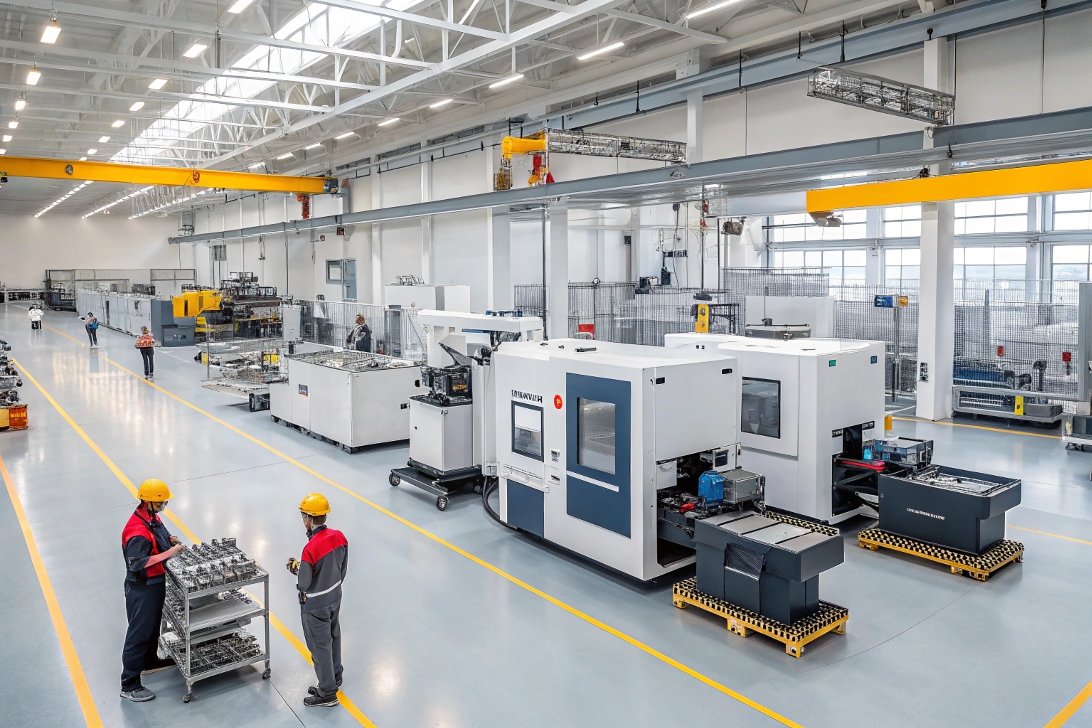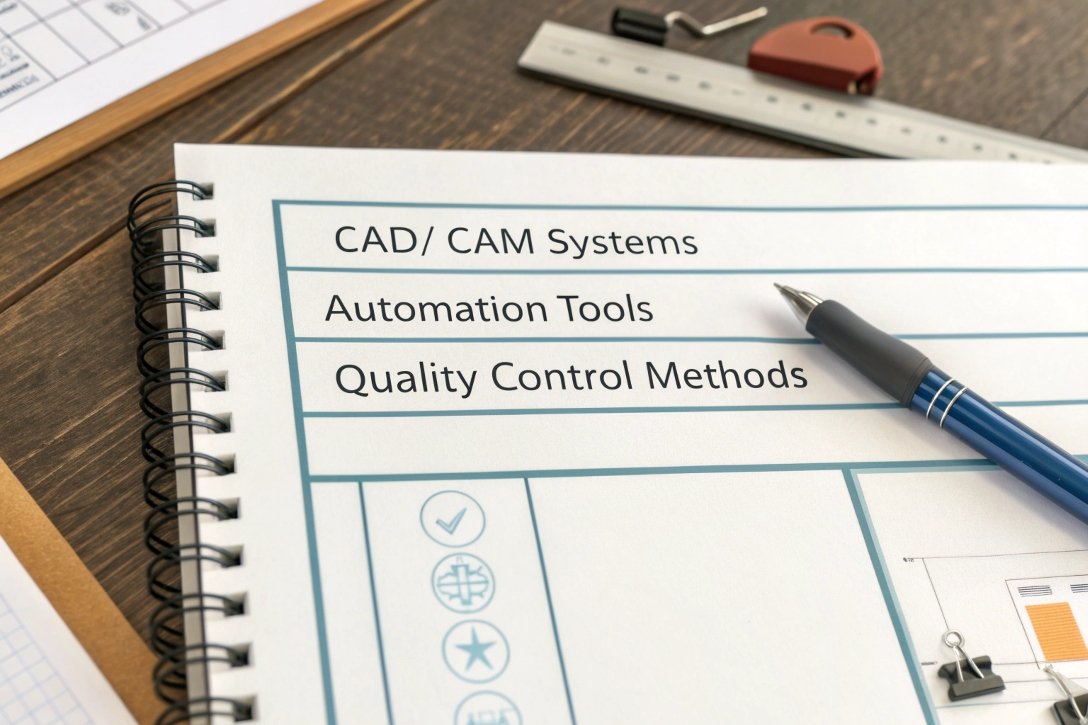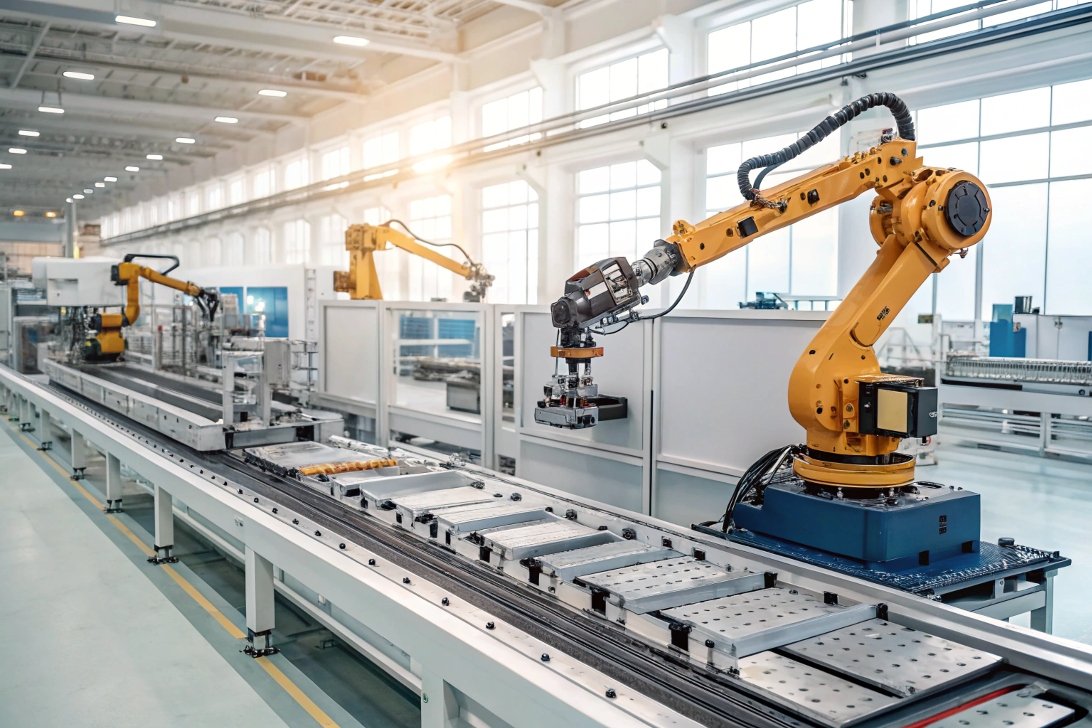
In today’s manufacturing world, technology plays a crucial role in the efficiency, quality, and cost-effectiveness of producing custom parts. As a buyer, evaluating the technological capabilities of potential suppliers is vital to ensuring that they can meet your production needs. The right technology can enhance production speed, precision, and scalability—allowing your business to stay competitive. But how do you assess whether a supplier has the right technological resources to meet your requirements?
Evaluating the technological capabilities1 of your custom parts suppliers helps ensure they can deliver the quality, speed, and scalability you need. Assessing factors such as their machinery, software, and innovation culture can give you the confidence to move forward with a partnership.
Let’s dive into the key technological factors to assess and how you can ensure your supplier has the right tools and resources to meet your needs.
What Technological Factors Should You Assess When Choosing a Custom Parts Supplier?

When selecting a supplier, it’s essential to evaluate the technologies they have in place to ensure they meet your production requirements. Key technological factors include machinery, automation, software, and digital capabilities.
Key Technological Factors to Assess
| Technological Factor | Why It’s Important |
|---|---|
| Machinery and Equipment | Evaluate the age, capability, and versatility of the supplier’s equipment. Modern machinery allows for better precision and faster production. |
| Automation | Automation helps to increase production efficiency, reduce human error, and ensure consistency in manufacturing processes. |
| CAD/CAM Systems2 | Computer-Aided Design (CAD) and Computer-Aided Manufacturing (CAM) systems streamline design and production, improving the quality and speed of custom parts manufacturing. |
| 3D Printing Capabilities3 | Additive manufacturing (3D printing) is essential for rapid prototyping, creating complex geometries, and reducing waste in custom parts production. |
| ERP (Enterprise Resource Planning) Systems | A good ERP system allows suppliers to efficiently manage inventory, track orders, and streamline production schedules, ensuring on-time deliveries. |
| Data Analytics and IoT (Internet of Things) | IoT devices can monitor production in real-time, providing critical data that can be used to predict maintenance, reduce downtime, and optimize processes. |
Why It Matters: The technology a supplier uses directly impacts the efficiency, quality, and consistency of the parts they produce. Suppliers with outdated or limited technology may struggle to meet your needs as your order volume or complexity increases.
How Can You Ensure Your Supplier Has the Right Technology to Meet Your Needs?

Ensuring that your supplier has the right technology to meet your needs requires clear communication and thorough evaluation. A supplier’s technological readiness can be assessed through site visits, certifications, and open discussions about their processes and tools.
Steps to Ensure Technological Compatibility
| Step | How It Helps |
|---|---|
| Conduct Site Visits | Visit the supplier’s facility to assess their equipment, machinery, and production processes firsthand. This helps you understand how well they can meet your needs. |
| Request a Technology Assessment | Ask the supplier to provide detailed information about their technology stack, including CAD/CAM systems, automation tools, and quality control processes. |
| Review Certifications and Standards | Suppliers that adhere to international standards (ISO, AS9100, etc.) often employ modern technology to ensure product quality and consistency. |
| Ask for Case Studies or References | Request examples of similar projects they have worked on. This can give you insight into how their technology has helped them deliver quality parts on time. |
| Request a Trial Run or Prototype | A small batch order or prototype production allows you to evaluate the supplier’s technology in action before making a full commitment. |
Why It Matters: Ensuring that a supplier has the technology to meet your specific needs minimizes the risk of production delays, quality issues, and inefficiencies. You need confidence that they can handle your order sizes and customization requirements.
Why Should You Consider a Supplier’s Technology Upgrades to Stay Competitive?

Technological upgrades can be a game-changer for both you and your supplier. Suppliers that continuously invest in technology are better equipped to meet new market demands, optimize their processes, and stay ahead of competitors.
Why Technology Upgrades Are Crucial
| Reason | How It Benefits You |
|---|---|
| Improved Production Speed | Upgraded machinery and automation reduce production times, allowing you to meet tighter deadlines. |
| Better Product Quality | New technology often improves precision, reducing defects and ensuring higher-quality parts. |
| Increased Scalability | As your business grows, suppliers with scalable technology can better handle higher volumes of production without sacrificing quality. |
| Cost Efficiency | Updated technology can lead to more efficient processes, reducing production costs and passing savings onto you. |
| Innovation | Suppliers who invest in technology often introduce new production methods and capabilities that can lead to innovative custom part solutions. |
Why It Matters: Staying competitive in the custom parts market requires agility and innovation. A supplier that continually upgrades their technology is better positioned to meet future demands and maintain high production standards. Choosing such a supplier can help you stay ahead of the competition.
Conclusion
When sourcing custom parts, evaluating the technological capabilities of your suppliers is essential. By focusing on key factors like machinery, automation, and digital tools, and ensuring that your supplier invests in technology upgrades, you can maintain a competitive edge, improve production efficiency, and ensure consistent quality. The right technology is a powerful asset in manufacturing, and working with suppliers who prioritize innovation will position your business for long-term success.
Understanding technological capabilities is crucial for ensuring suppliers can meet production needs effectively. ↩
Exploring CAD/CAM systems can reveal how they enhance design and production efficiency in custom parts. ↩
Discover how 3D printing can revolutionize custom parts production with rapid prototyping and reduced waste. ↩

